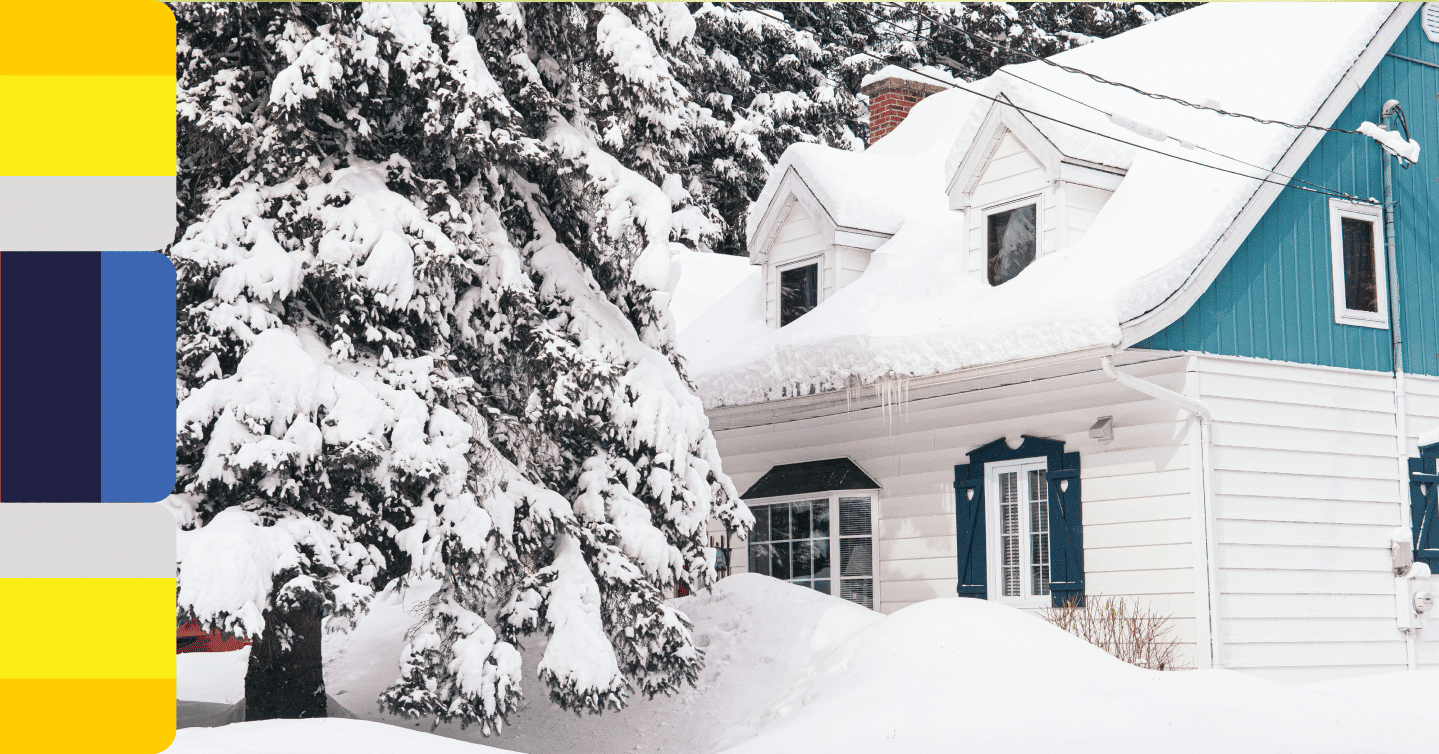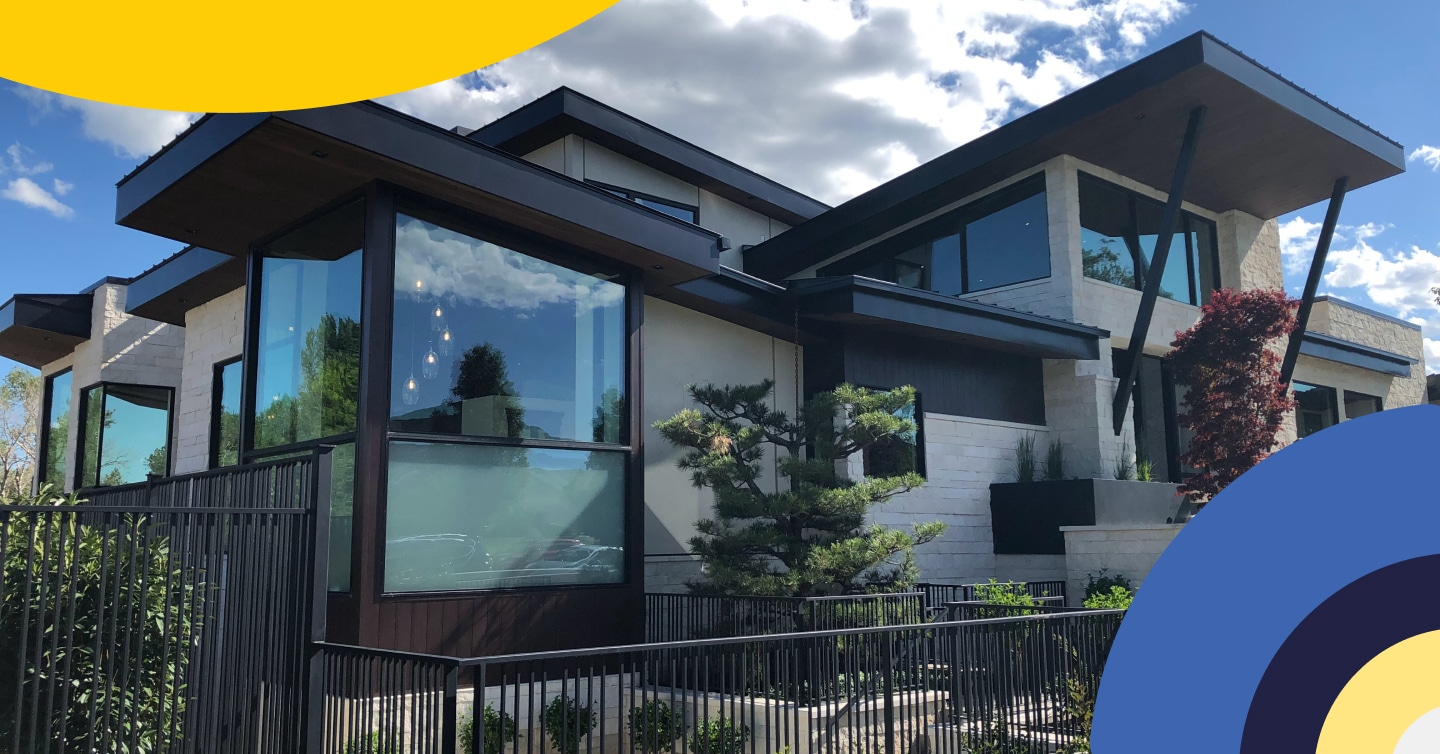How to Weatherproof Your Home in Nova Scotia

Table of contents
Are you a homeowner or considering buying a house in Nova Scotia? Whatever your current homeownership situation, you’ll want to look into protecting your home from the cold and windy winters and wet summers of Nova Scotia.
As energy costs keep on rising, we’d like to share with you 6 simple ways for you to weatherproof your home in Nova Scotia to save on your energy bills.
Key Takeaways
- Why weatherization in Nova Scotia is important and the ways to prep your home for winter.
- The importance of insulation in your home’s walls.
- How much it will cost you to weatherproof your Nova Scotia home.
Why is Weatherization Important?
Weatherproofing your home is important for several reasons, not just to save on energy costs. Weatherproofing your home will improve your quality of life inside your house. Living in a house with a comfortable temperature all year round is priceless and can be achieved by taking simple measures in your house. It will also help you maintain your home in better conditions for longer (no more mold or water infiltration damaging the walls and ceilings).
Weatherizing Your Nova Scotia Home to Save Energy Costs in Nova Scotia
As we saw in the previous point, weatherizing your home has a direct impact on your energy spending all year round. Nova Scotia is known for its windy winter months and is humid and quite rainy the rest of the year which means that you’ll need to keep warm in winter and be comfortable in the summer.
1. Get a Home Energy Audit
The first thing to do before making any changes around your house is to get an audit from a professional who will be able to list out all your energy-related issues. An energy assessment will identify the culprit(s) wasting your money every month and will also help you prioritize the urgent work needed to weatherproof your home.
2. Add Insulation to Exterior Walls
As mentioned previously, the wind, humidity, and cold experienced in Nova Scotia will put a strain on the exterior walls of your home. Adding extra insulation to your external walls will have the biggest impact on your energy-saving efforts. There are various ways to go about depending on the material of your exterior walls, the condition of the exterior walls, and of course the budget you’re able to set aside for this type of work.
Improving the insulation of your external walls will help you reduce heat loss by sealing off all the cracks and holes in the walls all around your home.
3. Air Seal Your Nova Scotia Home
Once you’ve improved the airtightness from the walls, you’ll want to focus on air sealing your home in all the other openings such as windows, chimneys, underneath the roof, any door frames leading to the exterior, the garage door and even the attic door. Air sealing your home will save you money in winter as well as in summer, especially if you have a heating, ventilation, and air conditioning (HVAC) unit in your home to regulate temperature, humidity, and air purity. Air sealing your home could save you up to 30% in energy costs.
Find a better rate, and we’ll match it, beat it, or give you $500*.
*Conditions Apply
With nesto, it’s stress-free
4. Improve Ventilation to Control Moisture
Air should circulate in your house through correct and controlled ventilation.
Moisture usually builds up in areas that are poorly sealed and it usually means that mold has room to grow. One way of controlling moisture in your home is by improving the overall ventilation.
5. Slightly Lower Your Thermostat When Leaving Your Home
It’s a myth that it’s cheaper to leave a room at a constant temperature than to turn the heat down when you’re away. It was proven wrong many times by energy companies and energy bodies alike. What they recommend is lower the temperature when you leave your home. If there are several rooms that you won’t be using for several hours, make sure to lower the temperature in those as well and keep the doors closed.
6. Prepare for Emergencies with the Right Essentials
When winter approaches in Nova Scotia, there are several important essentials you’ll want to prepare for emergencies as temperatures drop.
In case the power goes out, you’ll need:
- A winter survival kit with food that doesn’t need heating up or cooling such as dry biscuits, nuts, and dried fruits. Plenty of cans of food and a manual can opener.
- Another way to heat up your home such as dry firewood for the fireplace/woodstove or kerosene for a kerosene heater
- Plenty of blankets
- Matches
- First Aid kit with instructions
- Flashlights and battery-powered radio
- Snow shovel and rock salt
Frequently Asked Questions
Here are some frequently asked questions relating to weatherproofing your home in Nova Scotia to save on energy costs.
How much does it cost to weatherproof a house in Nova Scotia?
Homeowners in Nova Scotia spend between $200 to $2500 to weatherproof their homes, but major repairs or window replacements could increase your budget significantly. If you’re handy and do some research, your entire budget could be as low as 100.
What should I do if my power goes out in the winter?
If your power goes out in the winter, there are important steps to follow. First, make sure to keep all the doors closed and maintain the temperature inside your home for as long as possible. It’s also very important to keep your body temperature up so use your alternate heater if you have one. Your winter survival kit will allow you to have enough food for several days while the power is out.
Final Thoughts
To avoid bad surprises next time you’ll get your energy bills, don’t wait until the temperature drops before considering doing some of the work mentioned to weatherproof your home. Be prepared for the winter and in case of a power outage or if your main heating system breaks down in the middle of winter. As we mentioned, a home well-weathered will maintain its condition longer and will save you money on energy bills.
Ready to get started?
In just a few clicks, you can see our current rates. Then apply for your mortgage online in minutes!















